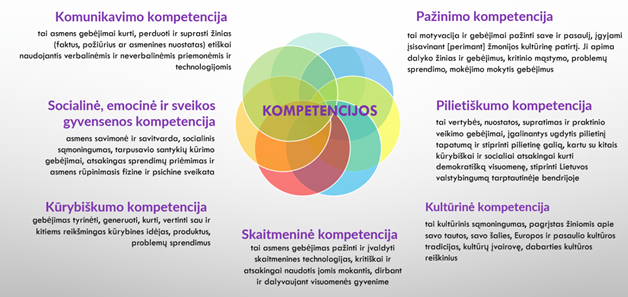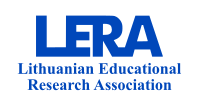2022 LERA Project : Teachers & Researchers Networking for Inquiry-based learning.

PROJECT RESULTS
Teachers’ & Researchers’ Networking Procedures
The reports of Inquiry-based learning projects designed by teachers:
Aizkraukle regional secondary school
2. Reverse Vending Machine (Deposit Return System) and Usage of it in Our Neiborhood
3-6. The Circular Economy: Food and Waste, 3 IBL
Šalčininkai Stanislovas Rapolionis Gymnasium
7-10. Seeds are a Storehouse of Organic Nutrients
Vilnius Vytauto Didžiojo gymnasium
11. Dependence of the Oxygen Content in the Blood on the Time of Wearing the Medical Mask
12. Dependence of Blood Oxygen Level on Physical Exercises
13. Measurement of the Noise Level in Various Gymnasium Rooms
14. Construction of a Hydrogen Generator
15. Where is the most CO2 in the Gymnasium?
Vilkaviškis Pilviškis „Santakos“ gymnasium
16. Using Bile and Enzymes to Remove Stains
17. Sustainable Watering of Plants
Will Collaboration Between Teachers and Researchers to Enable Students‘ Inquiry
This is the aim of one of the first Erasmus + Small-Scale Partnership international projects of the Lithuanian Educational Research Association (LERA); when teachers and researchers came together for joint activities. For the implementation of the project, LERA has brought together Lithuanian and Latvian researchers of Educational Science, who, by sharing their research experience, will initiated the development and implementation of research-based learning projects in schools that enable students to get to know the world through research.
Researchers suggested that teachers choose appropriate methods and scenarios for STEAM education and social research at school. Lithuanian and Latvian teachers and their students implemented the inquiry-based learning (RBL) projects created in the course of the cooperation in educational practice. The result of this collaboration between researchers and teachers is the creation and implementation of 18 IBL projects. To disseminate the results of the project, published on international platforms for sharing good practice of teachers.
Project results – TEACHERS’ & RESEARCHERS’ NETWORKING PROCEDURES and 18 implemented Inquiry-based learning IBL projects’ cases are shared on the Erasmus+ Project Results Platform (https://erasmus-plus.ec.europa.eu/projects/search/details/2021-1-LT01-KA210-SCH-000029546)
LERA from the 2nd of January 2022 year implemented a 6-month project Teachers & Researchers Networking for Inquiry-Based Learning. Project partners – Social Leadership Association, Vilnius Vytautas Magnus, Vilkaviškis district. Pilviškiai Santakos and Salcininkai district, Eišiškės Stanislovas Rapolionis Gymnasium and Aizkraukle District Secondary School from Latvia.
Project researchers: prof. dr. Rūta Girdzijauskienė, prof. dr. Neringa Strazdienė, assoc. prof. Gražina Šmitienė, assoc.prof Dita Nīmante, dr. Eglė Pranskūnienė, dr. Natalija Ignatova, dr. Sandrita Škėrienė. For project information, contact to the project manager dr. Natalija Ignatova e-mail email: [email protected]
The BIG IDEAS Fulfilment Through Inquiry
Will cooperation between teachers and researchers become a tradition enabling students to inquire? This is the aim of one of the first Erasmus+ Small-Scale Partnership international projects of the Lithuanian Educational Research Association (LERA), where teachers and researchers come together for joint activities.
Since January LERA is implementing a 6-month project Teachers & Researchers Networking for Inquiry-based learning. The partners of this Project: from Latvija – Aizkraukle district secondary school; from Lithuania – Social leadership association; Vilnius Vytautas Magnus Gymnasium; Santaka Gymnasium in Pilviškiai, Vilkaviskis district; Stanislovas Rapolionis Gymnasiums in Eišiškės, Salcininkai district.
Achieving the aim of this project, LERA has brought together Lithuanian (prof. Rūta Girdzijauskienė, prof. Neringa Strazdienė, asoc. prof. Gražina Šmitienė, PhD Eglė Pranckūnienė, PhD Natalija Ignatova, PhD Sandrita Škėrienė) and Latvian (asoc. prof. Dita Nīmante) educational researchers. These researchers sharing their experience and knowledge initiate the development and the implementation of the Inquire-based learning (IBL) projects in the schools that enable students to get to know the world and to fulfill the BIG IDEAS through Inquiry.
The researchers presented to teachers the methods and scenarios eligible for STEAM education and social research at school. January – February 2022 there was an international discussion among experts in the field of education on the involvement of students in Inquiry-based learning projects. Lithuanian and Latvian educational researchers cooperating with gymnasium teachers in these countries are implementing the project “Networking of Teachers and Researchers for Inquiry-based learning”, which aims to expand the range of research methods used in schools. One result of this cooperation is to create 16 IBL projects that the teachers with their students are verifying in educational practice.
Inquiry-based learning is directed towards the development of a creative, researching and not afraid of the unknown person. “An Inquiry-based learning project, or IBL projects, is a step-by-step activity by a teacher with students to enable them to achieve a learning goal. The aim of IBL projects is to encourage researching, asking questions, creating, improving, discovering, presenting the result, reflecting individually and in collaboration“, says the project’s manager dr. Natalia Ignatova.
“The main challenge and at the same time the goal is to expand classroom teaching with more diverse forms of teaching, applying educational research methods”, says dr. Eglė Pranckūnienė. The Inquiry research develops the competencies necessary for a 21st century person – communication, social, emotional and healthy lifestyle, creativity, cognition, citizenship, cultural, and digital competencies. The components of cognitive competence are particularly relevant to research activities and are addressed by teachers and researchers when developing IBL plans: subject knowledge and skills, critical thinking, problem solving, and ability to learn.

Teachers are encouraged to initiate student research projects aiming to fulfil any of the BIG IDEA and based on the needs of the classroom or students to address a problem of a scholar a community. In this way, the students’ research projects are linked to the BIG IDEAS, i.e. they pay attention to the fundamental issues of the existence of a man, the society, the world that requires the integration of several subjects and the raising of the fundamental questions.
Many methodologies can be applied while implementing research projects. When choosing a method, researchers recommended taking into account the purpose of the inquiry research and the subjects taught.
In order to disseminate the results of the project and to share good practice of the teachers, several IBL projects are planned to develop as Inquiry-based learning space and publish on international Go-Lab platform. This platform is proposed for the implementation of STEAM research projects. “This platform offers a research process that encourages questioning and discovery in research of innovation. Research is only effective when it is well-structured, planned and guided,” says Olga Dziabenko, a researcher at the University of Deusto.
“Art-based research is the latest “invention” of the research methodology. It is the ability to manipulate images and concepts connecting to others who share a culture and have the same “imaginary universe” or “worlds of possibility” (Dyson, 1993, p. 23), quotes professor Rūta Girdzijauskienė. Art-based research is recommended for teachers intending to implement STEAM projects.
Schools choose the 5E model when organizing Inquiry-based learning. “This learning model develops students’ critical and creative thinking. Students’ are empowered for active learning activities, the courage to make mistakes and a look for new solutions to the problem is activated, the ability of students to assess and to reflect is deepened,” emphasizes assoc. prof. Gražina Šmitienė.
ABC Learning design is a method for planning projects and organizing activities. “The card-based approach to curriculum development is not only learning design, but also strategic, academic development, quality assurance, analysis, problem solving, and it is a tool for developing digital literacy”, notes Jurgita Bražinskienė, director of the Social Leadership Association.
The methods discussed in the international discussion were presented to teachers, encouraging schools to develop prospective researchers who would be able to raise important questions and provoke new ways of thinking and raise awareness of the meaning and mission of educational research. The activities are focused on the goal of the project to create a methodological description of cooperation (networking) between teachers and researchers.
The activity is implemented according to the project of the small-scale partnership project “Teachers & Researchers Networking for Inquiry-based Learning” No. 2021-1-LT01-KA210-SCH-000029546. More about the project in Lithuanian please see LETA website: https://lera.lt/about-leta/leta-projektai
On the national level of policy in Education of the detailed Project results’ presentation and analysis published in the periodical “Švietimo naujienos” (Educational news): https://www.svietimonaujienos.
